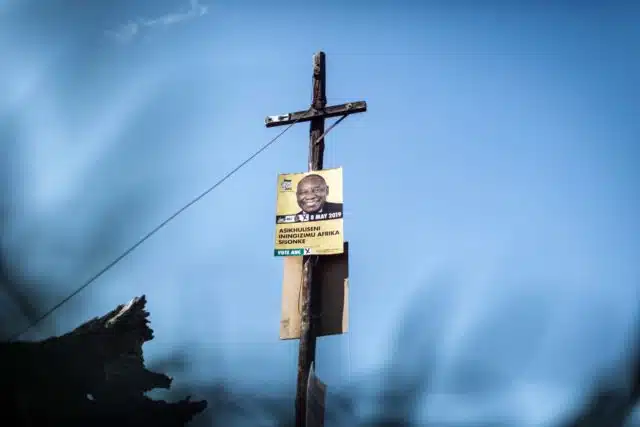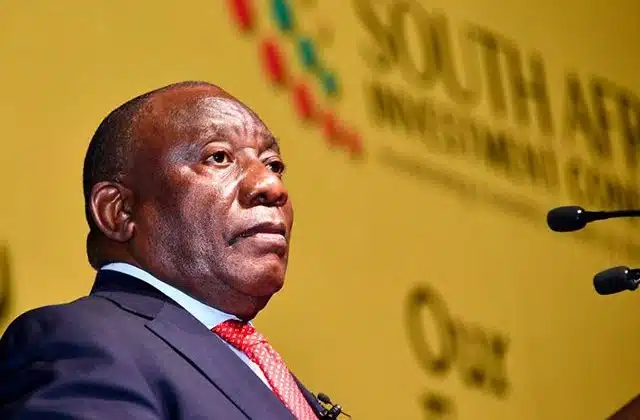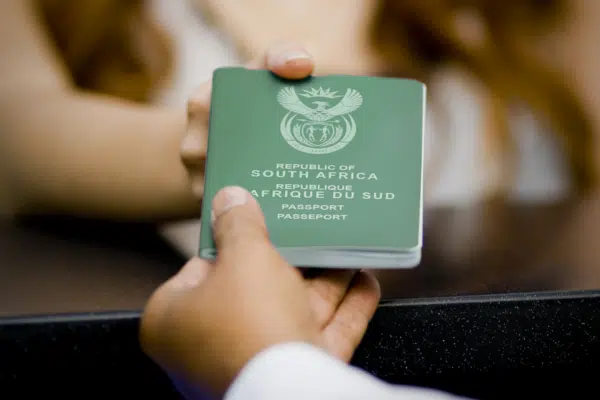
Major backlash against new laws to change elections in South Africa
Over 30 civil society organisations have written to parliament calling for the immediate reconsideration of the Electoral Amendment Bill that is placed in front of Parliament this Thursday (20 October).
The groups, including the Organisation Undoing Tax Abuse (Outa), Build One South Africa and Solidarity, said that the bill relies solely on the minority view provided by the minister of home affairs, Aaron Motsoaledi, and if passed, will disenfranchise voters significantly.
“The foundations of our electoral system are based on the long traditions of the liberation struggle that call for ‘one person, one vote of equal value.”
The proposed system regarding how individual candidates are dealt with in the electoral significantly erodes the equality of vote, betraying the Consitution and centuries of the liberation struggle, said the group.
Changes to the electoral system stemmed from a ruling by the most authoritative court in South Africa, the Constitutional Court, that in the case of New Movement NPC and Others v President of the Republic of South Africa, in 2020, gave parliament 24 months to amend the Electoral Act to make it possible for independent candidates to contest national and provincial elections – this deadline has since lapsed.
Parliament was tasked with renovating the law to allow individual candidates to run for political office while not being affiliated with a specific political party. The “workable solution” now met by parliament is under pressure.
The case resulted in two opposing views, the majority and the minority, the latter being the foundation of the new amendments.
The majority view
“The majority view suggested that South Africa should adopt a mixed electoral system, with 200 seats in the National Assembly being voted directly from single-member constituencies and the remaining 200 being determined from proportional representations lists, as it pertains in local government with the 50/50 split of seats.”
This view contended that this would result in fairness for individual candidates and achieve the constitution’s requirement for an electoral system that results in general proportionality of the outcome, said the group.
The minority view
This view, which was subsequently relied on, adopted a ‘minimalist approach’ for the inclusion of such candidates.
It defines whole provinces as constituencies and forces independent candidates to compete with political parties – and not individuals representing a party – as it pertains to a municipal level.
“It is a system that does not exist anywhere else in the world and is patently unsuitable for enabling independent candidates to fairly contest in elections.”
Tricky job
Legal experts from Cliffe Dekker Hofmeyr said that parliament has a tricky job ahead of it, noting the following example:
“If come the next general elections, there are 20 million registered voters; and a popular individual running for office obtains a mandate from two million voters, it cannot be possible that despite securing 10% of registered voters, the individual is given only one seat in whichever legislature they ran for. Such an outcome would be grossly unfair and disenfranchising towards the voters.”
Parliament has chosen to deal with independent representation by solely relying on the principle of proportional representation; however, a mixed approach that incorporates both single-member constituencies alongside proportional representation is better suited according to the groups in opposition to the system.
Independent candidates are, under the bill, required to have a percentage of signatures from their constituency to indicate their level of support. Political parties are, however, not required to do the same.
Under the current proposed amendment, if a seat was worth 44,000 votes, then 20% of the 44,000 voters would be required to be signatories – amounting to 8,800 signatures. Political parties only require a founding document and 1,000 registered voters in respect of the National Assembly.
See the collective CSO letter sent to MPs of @ParliamentofRSA regarding the Electoral Amendment Bill vote taking place today.
In this letter we call on MPs to #RejectTheBill and #VoteNo #RejectElectoralBill pic.twitter.com/FdNQGaao1h
— Defend Our Democracy (@ForDemocracySa) October 20, 2022
Read: Big changes are coming for e-tolls – with a final decision imminent.



